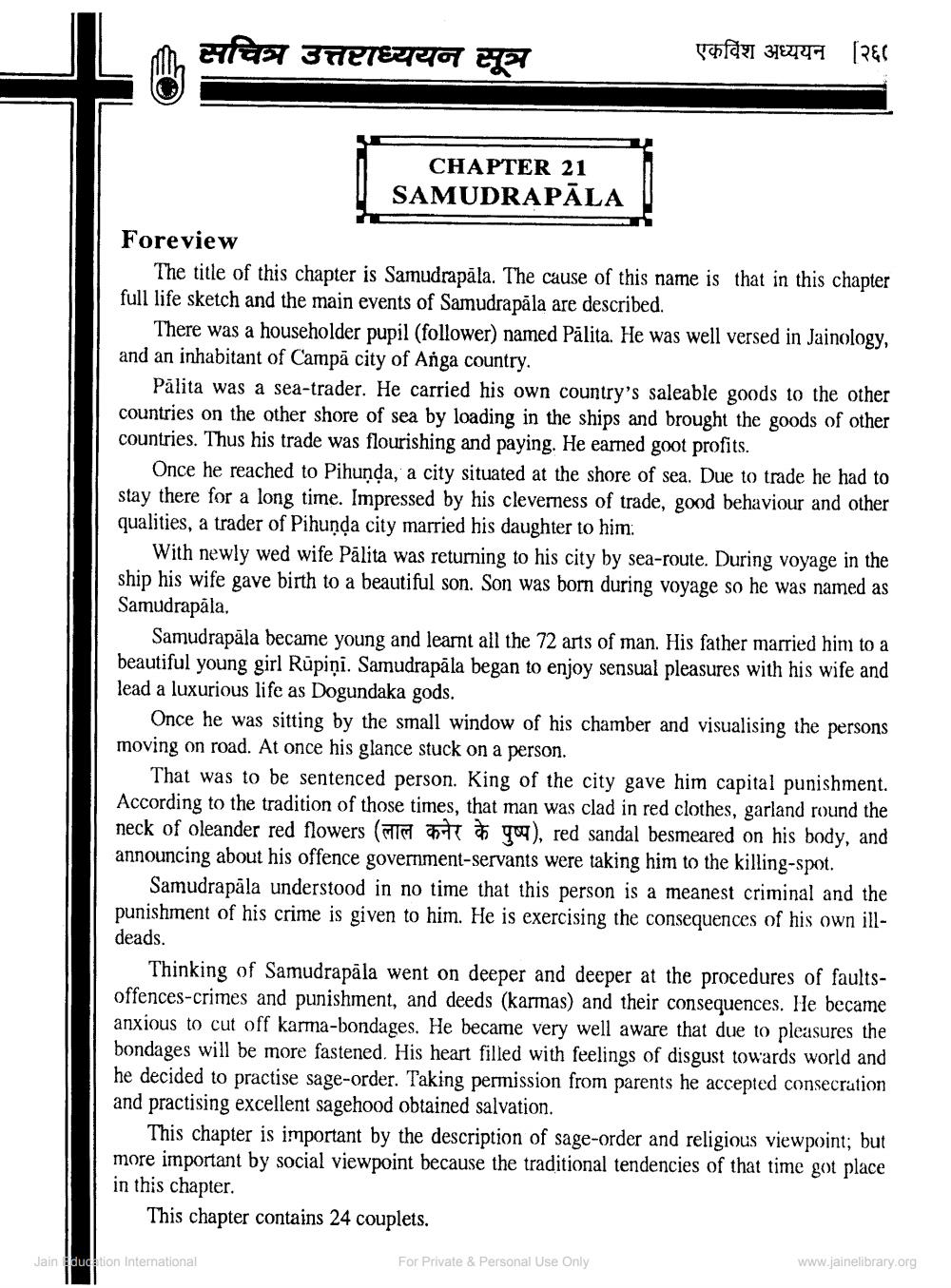________________
सचित्र उत्तराध्ययन सूत्र
एकविंश अध्ययन [२६०
CHAPTER 21 SAMUDRAPĀLA
Foreview
The title of this chapter is Samudrapāla. The cause of this name is that in this chapter full life sketch and the main events of Samudrapāla are described.
There was a householder pupil (follower) named Palita. He was well versed in Jainology, and an inhabitant of Campā city of Anga country.
Pålita was a sea-trader. He carried his own country's saleable goods to the other countries on the other shore of sea by loading in the ships and brought the goods of other countries. Thus his trade was flourishing and paying. He earned goot profits.
Once he reached to Pihunda, a city situated at the shore of sea. Due to trade he had to stay there for a long time. Impressed by his cleverness of trade, good behaviour and other qualities, a trader of Pihunda city married his daughter to him.
With newly wed wife Pālita was returning to his city by sea-route. During voyage in the ship his wife gave birth to a beautiful son. Son was born during voyage so he was named as Samudrapala,
Samudrapala became young and learnt all the 72 arts of man. His father married him to a beautiful young girl Rūpiņi. Samudrapāla began to enjoy sensual pleasures with his wife and lead a luxurious life as Dogundaka gods.
Once he was sitting by the small window of his chamber and visualising the persons moving on road. At once his glance stuck on a person.
That was to be sentenced person. King of the city gave him capital punishment. According to the tradition of those times, that man was clad in red clothes, garland round the neck of oleander red flowers (FTIGT to you), red sandal besmeared on his body, and announcing about his offence government-servants were taking him to the killing-spot.
Samudrapāla understood in no time that this person is a meanest criminal and the punishment of his crime is given to him. He is exercising the consequences of his own illdeads.
Thinking of Samudrapāla went on deeper and deeper at the procedures of faultsoffences-crimes and punishment, and deeds (karmas) and their consequences. He became anxious to cut off karma-bondages. He became very well aware that due to pleasures the bondages will be more fastened. His heart filled with feelings of disgust towards world and he decided to practise sage-order. Taking permission from parents he accepted consecration and practising excellent sagehood obtained salvation.
This chapter is important by the description of sage-order and religious viewpoint; but more important by social viewpoint because the traditional tendencies of that time got place in this chapter.
This chapter contains 24 couplets.
For Private & Personal Use Only
Jain budition International
www.jainelibrary.org




